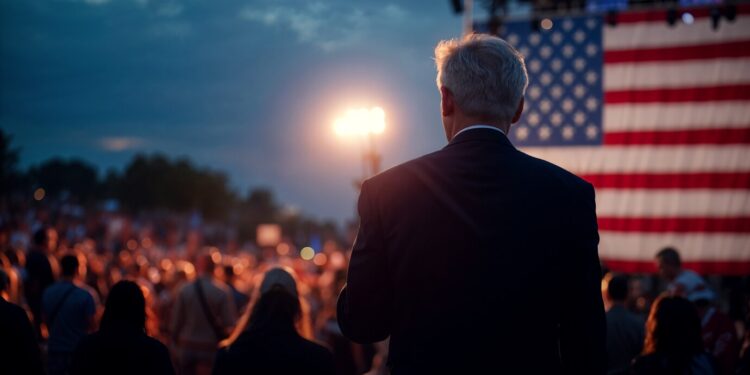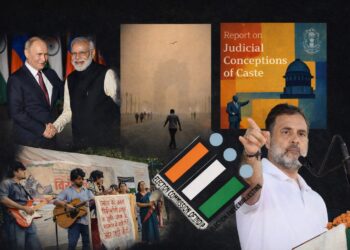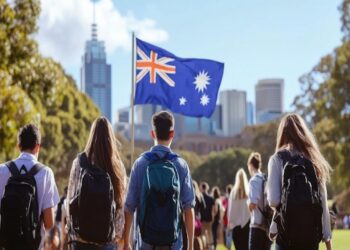Donald Trump has taken his legal battle to the highest court in the United States in an effort to curb birthright citizenship, a move that has ignited intense debate over constitutional rights and immigration policy. The former president has petitioned the US Supreme Court to intervene after lower courts issued nationwide injunctions blocking his executive order aimed at restricting citizenship for children born in the country to non-citizen parents. This legal challenge is set to have far-reaching implications, potentially reshaping US immigration law and redefining the scope of the 14th Amendment.
Trump’s Executive Order and Its Implications
On January 20, 2025, Donald Trump signed an executive order directing federal agencies to deny automatic citizenship to children born in the United States unless at least one parent is a US citizen or a lawful permanent resident. This order seeks to challenge the long-standing interpretation of the 14th Amendment, which has traditionally granted birthright citizenship to all individuals born on American soil, regardless of their parents’ immigration status.
The executive order aligns with Trump’s broader immigration policy, which has consistently sought to tighten restrictions on entry, residency, and citizenship pathways for non-citizens. Supporters of the order argue that it is necessary to prevent misuse of birthright citizenship, often referred to as “birth tourism,” where foreign nationals allegedly travel to the US for the sole purpose of giving birth and securing citizenship for their child. However, critics see the order as an unconstitutional attack on a fundamental principle of US law.
Legal Challenges and Federal Court Injunctions
Almost immediately after the executive order was issued, multiple legal challenges were filed in federal courts. Judges in Washington, Massachusetts, and Maryland ruled against the order, issuing nationwide injunctions that prevent its enforcement while legal proceedings continue. These courts reasoned that the order is likely unconstitutional, as it contradicts the explicit wording of the 14th Amendment, which states that “all persons born or naturalized in the United States, and subject to the jurisdiction thereof, are citizens of the United States.”
Opponents of the executive order, including civil rights groups, immigration advocacy organisations, and legal scholars, argue that the attempt to restrict birthright citizenship through executive action oversteps presidential authority. Many point to previous Supreme Court rulings, such as United States v. Wong Kim Ark (1898), which upheld the principle that children born in the US to non-citizen parents are entitled to citizenship.
The Trump Administration’s Appeal to the Supreme Court
In response to the nationwide injunctions, the Trump administration has escalated the legal battle by petitioning the Supreme Court. The Justice Department is requesting that the court lift or narrow the scope of these injunctions, arguing that federal judges should not have the authority to impose nationwide bans that extend beyond the plaintiffs involved in a particular case.
Trump and his legal team contend that the 14th Amendment has been misinterpreted for over a century and that birthright citizenship should not apply to children of undocumented immigrants or those on temporary visas. His argument rests on the phrase “subject to the jurisdiction thereof,” claiming that individuals who do not have legal status in the US are not fully under American jurisdiction.
Should the Supreme Court agree to hear the case, its ruling could significantly impact not only immigration policy but also the broader scope of executive authority. If the court upholds Trump’s order, it would set a precedent allowing future administrations to redefine citizenship requirements without congressional approval.
The Constitutional Debate Over Birthright Citizenship
At the heart of this legal battle lies a fundamental question: How should the 14th Amendment be interpreted? The amendment, ratified in 1868 following the Civil War, was designed to grant citizenship rights to formerly enslaved individuals and their descendants. Over the years, courts have consistently upheld its application to nearly all individuals born on US soil, with a few exceptions, such as children of foreign diplomats.
Legal scholars warn that altering this interpretation through executive action rather than a constitutional amendment would create a dangerous precedent. Any change to birthright citizenship, they argue, should go through the formal legislative or constitutional process rather than being dictated by an executive order that can be overturned by future administrations.
On the other side of the debate, proponents of restricting birthright citizenship argue that the policy was never meant to cover children of those who entered the country unlawfully or without permanent ties to the US. Some Republican lawmakers have long advocated for revisiting the amendment’s application, arguing that modern immigration dynamics differ greatly from the era in which it was written.

Potential Consequences of the Supreme Court’s Decision
If the Supreme Court sides with Trump and allows the executive order to stand, the ruling would likely trigger widespread legal and political consequences. First and foremost, it would fundamentally alter the citizenship process, potentially leaving thousands of US-born individuals in a legal grey area regarding their status.
A ruling in Trump’s favour could also embolden future presidents to test the limits of executive power in shaping immigration policy without congressional approval. This could lead to an era of policy instability, where fundamental rights and interpretations of constitutional provisions shift depending on who occupies the White House.
On a broader scale, such a ruling could influence global discussions on citizenship and migration. The US is one of the few developed nations that grants unconditional birthright citizenship, and a reversal could prompt other countries to re-examine their policies. This could impact immigration flows, residency planning, and legal frameworks for citizenship worldwide.
Conversely, if the Supreme Court upholds the lower court injunctions and strikes down Trump’s order, it would reinforce the longstanding interpretation of the 14th Amendment. Such a ruling would reaffirm birthright citizenship as a core principle of US law and limit the ability of future administrations to alter it through executive action.
Political Reactions and Public Opinion
Trump’s move has reignited deep political divisions over immigration policy. His supporters, including many within the Republican Party, have praised the effort, viewing it as a necessary step to curb what they see as loopholes in the immigration system. Many conservative lawmakers argue that the current birthright citizenship policy encourages illegal immigration and places an undue burden on social services.
Democrats, civil rights organisations, and immigrant advocacy groups have condemned the order as unconstitutional and discriminatory. They argue that it unfairly targets vulnerable communities and undermines America’s foundational values of equality and inclusivity.
Public opinion on the issue is divided, with some polls suggesting a growing number of Americans support tighter restrictions on birthright citizenship, while others maintain that it remains an essential component of national identity and legal stability.
What Lies Ahead in the Legal Battle
As the Supreme Court deliberates on whether to take up the case, legal experts predict a contentious and closely watched battle ahead. Given the court’s current conservative majority, there is a possibility that it may be more receptive to Trump’s arguments than lower courts have been. However, past rulings on birthright citizenship suggest that overturning such a deeply embedded legal precedent would be a formidable challenge.
The case also raises broader questions about executive authority, judicial review, and the future of immigration law in the US. Regardless of the outcome, the debate over birthright citizenship is unlikely to end soon, as it remains one of the most polarising issues in American politics.
As the legal proceedings continue, the world will be watching closely to see how the Supreme Court navigates this pivotal issue. Whether the ruling reinforces traditional interpretations of citizenship or paves the way for a radical shift, its impact will be felt for generations to come.










